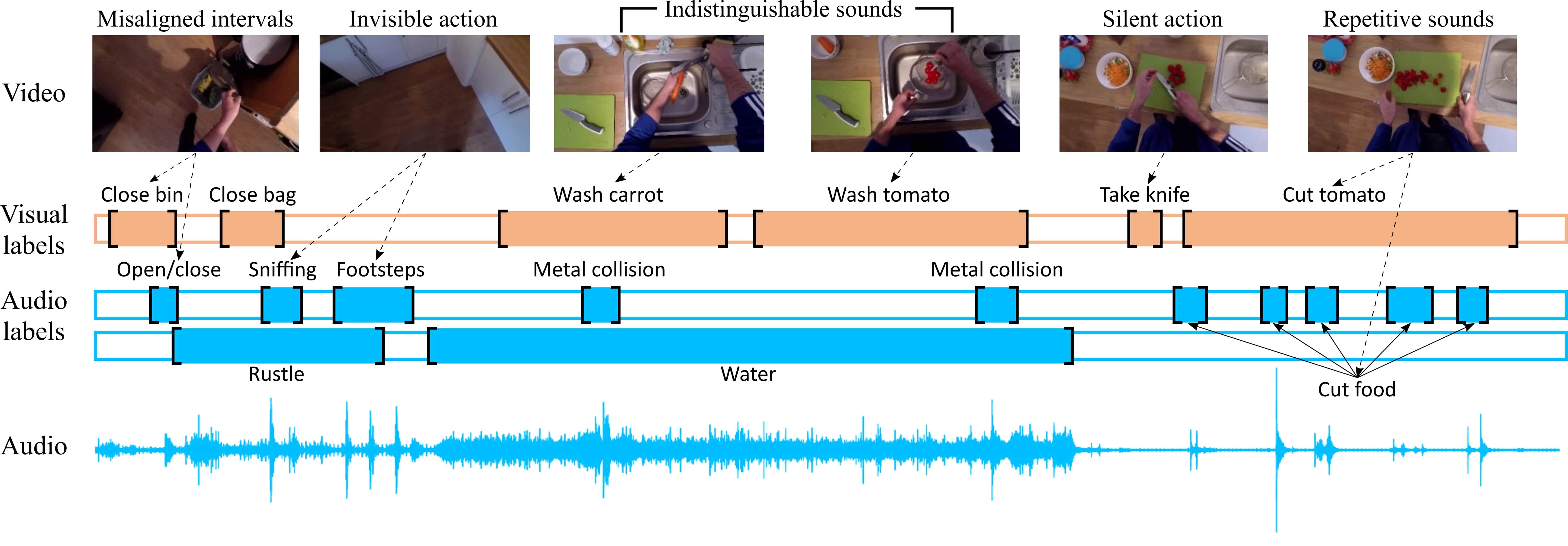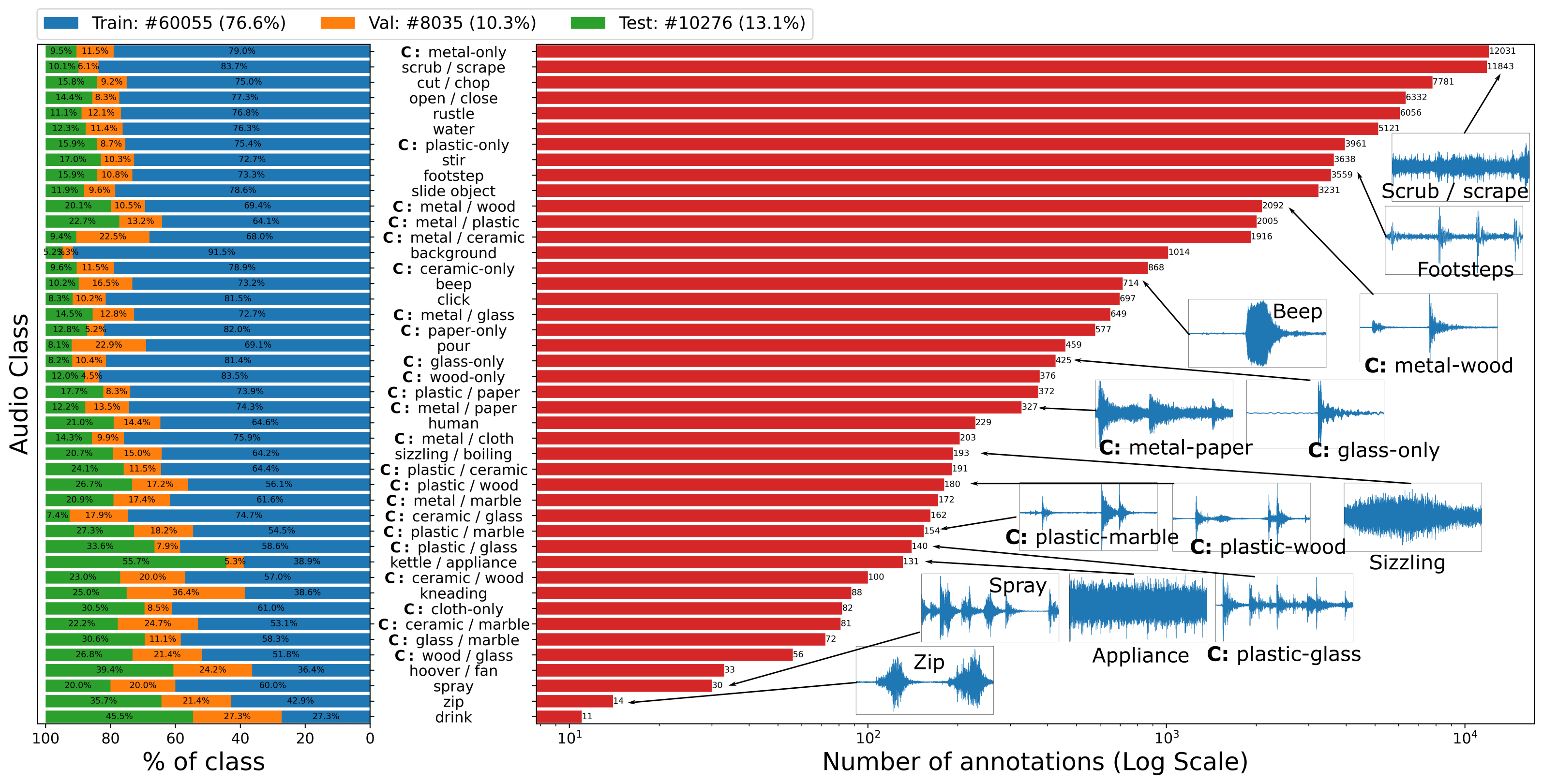EPIC-SOUNDS Dataset

We introduce EPIC-SOUNDS, a large scale dataset of audio annotations capturing temporal extents and class labels within the audio stream of the egocentric videos from EPIC-KITCHENS-100. We propose an annotation pipeline where annotators temporally label distinguishable audio segments and describe the action that could have caused this sound. We identify actions that can be discriminated purely from audio, through grouping these free-form descriptions of audio into classes. For actions that involve objects colliding, we collect human annotations of the materials of these objects (e.g. a glass object colliding with a wooden surface), which we verify from visual labels discarding ambiguities. Overall, EPIC-SOUNDS includes 75.9k segments of audible events and actions, distributed across 44 classes. We train and evaluate two state-of-the-art audio recognition models on our dataset, highlighting the importance of audio-only labels and the limitations of current models to recognise actions that sound






